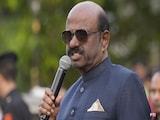A sprawling liquor syndicate came to light with proceeds of over Rs 1,000 crore, massive cash transfers, a WhatsApp group named 'Bigg Boss', fake holograms, and real estate empire and one man at the centre of it all - former Chhattisgarh chief minister Bhupesh Baghel's son Chaitanya Baghel.
Chaitanya Baghel, currently in the custody of the Enforcement Directorate (ED) in connection with the infamous liquor scam, will also probably face arrest by the Economic Offences Wing (EOW).
On September 15, the ED filed a fifth supplementary chargesheet, running over 7,000 pages, in a special court. The chargesheet confirmed that Chaitanya Baghel personally handled more than Rs 1,000 crore of scam proceeds, and investigators say he was the mastermind who converted this illicit cash into an empire of influence and property.
The scale of the scam is staggering, with the ED claiming that Rs 1,392 crore was funneled to Congress leaders and their allies between 2019 and 2022 alone.
Scam's Origins
The liquor scam has its origins in February 2019, when Congress heavyweight Anwar Dhebar convened a meeting at a Raipur hotel. Distillers, including Naveen Kedia of Chhattisgarh Distillery, Prince Bhatia of Bhatia Wines, and Rajendra Jaiswal of Welcome Distillery, attended, along with bureaucrats AP Tripathi and Arvind Singh. At this meeting, the foundation of the syndicate was laid. It was decided that commissions would be collected per case of liquor supplied, with distillery operators promised higher rates in exchange for paying kickbacks.
Bigg Boss 'Bittu'
The investigation revealed the existence of a WhatsApp group named "Bigg Boss", through which financial transactions worth hundreds of crores were allegedly coordinated. Participants in the group included Chaitanya Baghel, referred to as "Bittu," along with Mr Dhebar, retired IAS officer Anil Tuteja, excise official Saumya Chaurasia, and businessman Pushpak. The ED's chargesheet has attached screenshots of these chats, showing in detail when "Bittu" called, how long conversations lasted, and what instructions were issued. The group functioned as a parallel command centre for the state's liquor trade, where decisions about routing cash, creating duplicate holograms, and managing commissions were made.
Evidence was also recovered from the mobile phones of Mr Dhebar, Mr Tuteja and Ms Chaurasia. In Mr Anwar's phone, Chaitanya Baghel's number was saved under the nickname "Bittu." Chats showed discussions of massive cash transfers, fake hologram production, and the sharing of black money. According to the ED, Chaitanya Baghel personally profited to the tune of at least Rs 200 crore, while another Rs 850 crore was allegedly routed to then Congress treasurer Ram Gopal Agarwal.
Modus Operandi
The agency says that the scam ran with military precision, with WhatsApp group discussions determining who would receive money, which contractors would be paid, and how much cash was to be laundered.
The syndicate's operations were divided into three parts: Part A involved commissions of Rs 75 per case, generating more than Rs 300 crore. Part B revolved around a shadow liquor market where duplicate holograms allowed thousands of cases to bypass state warehouses. In 2022-23 alone, 400 trucks of illegal liquor moved monthly, netting the syndicate Rs 3,000 per case. Part C involved a rigged licensing system called FL-10A, which gave select firms the right to sell imported foreign liquor at inflated prices, generating another Rs 211 crore.
Real Estate Swindler
The chargesheet also traces how scam money was laundered into real estate. Chaitanya Baghel's projects Vitthal Green and Baghel Developers & Associates were allegedly used as laundromats. Though official records showed only Rs 7.14 crore spent, investigators estimate the real cost at Rs 13-15 crore, with Rs 4.2 crore paid off the books in raw cash to contractors.
In 2020, in one astonishing move, 19 flats in Vitthal Green were bought in a single day by employees of liquor baron Trilok Singh Dhillon, a tactic the ED says was designed to camouflage black money. The names of prominent Bhilai jewelers also surfaced. They allegedly provided "loans" of Rs 5 crore to Chaitanya Baghel's companies and then purchased six prime plots for just Rs 80 lakh. The ED has described this as a textbook example of laundering cash moving in, property moving out, all under the guise of legitimate business.
"High Production Corruption Engine"
The ED's investigation has revealed the involvement of bureaucrats, politicians, businessmen, bottle suppliers, security contractors, and even hologram printers. Retired Chief Secretary Vivek Dhand, according to ED, was not merely a silent overseer but an alleged direct beneficiary. In the agency's words, the excise department was converted into a "high-performance corruption engine," greased with fear, favour, and fortunes.
Liquor trader Laxmi Narayan alias Pappu Bansal, considered close to Bhupesh Baghel admitted during interrogation that he and Chaitanya Baghel jointly handled more than Rs 1,000 crore in cash. He revealed that money was passed from Mr Dhebar to Deepen Chavda, and then onward to Congress leaders Mr Agarwal and KK Srivastava. In just three months, Mr Bansal claimed he managed Rs 136 crore. According to ED officials, Mr Bansal's testimony shows how deeply entrenched the syndicate was within the political establishment.
Chaitanya Baghel's Defence
Chaitanya Baghel's lawyer Faisal Rizvi has dismissed the case as politically motivated. He alleged that the arrest was illegal, based solely on the statement of Pappu Bansal, who himself is missing and against whom a non-bailable warrant has been issued. Mr Rizvi said his client had always cooperated with investigators, submitted all required documents, and yet was never summoned for questioning before being arrested. He argued that his client has been made a scapegoat to target the former chief minister.















